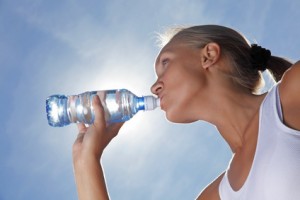Camping is one of the top summer activities, particularly if you live near a national forest. The fresh air, escape from city noise, and beauty of nature make camping one of the best family-friendly trips one can take in the summer. However, camping often comes with its own set of risks, especially for children. There are a few ways you can make your family camping trip as fun and safe as possible. Here are a few tips:
Be Diligent with Mosquito Repellent
For the most part, mosquitos are only annoying pests that make you itchy. They don’t often pose a major health risk to you or your kids. However, they can carry diseases such as West Nile Virus, malaria, and yellow fever. Although diseases from mosquitos are somewhat rare in North America, it certainly is better to be safe than sorry.
People often also scratch open mosquito bites, which leaves behind an open wound. Kids tend to be very nonchalant about picking and scratching at bug bites, which makes them susceptible to infection. The best way to prevent disease and infection is to prevent mosquito bites altogether.
Life Jackets are a Must
Life jackets are a necessity if you are going to be camping near a body of water. Keep in mind that rivers may seem placid on the surface while concealing a strong current beneath. Rivers easily pull even the best swimmer under and drag them across the river bottom.
Lakes pose a threat to children, especially those who are boating, because they have less endurance. If children are thrown from the boat, they could be stunned by the impact, and it will not take much time for them to lose strength and dip below the surface of the water. Accidents can happen even under the watchful eye of the most observant parent. It is best to take safety precautions.
Maintain a Similar Sleep Schedule
Sleeping in the great outdoors can be a very exciting prospect for kids. It is their vacation and they are more than likely prepared to stay awake for the duration of the trip. Unfortunately for them, it is important that their sleep schedule does not deviate too much from their usual routine. Try to keep bedtime within a half an hour of their normal bedtime. To encourage sleep, you may want to bring some foods that aid sleep. It also helps to stick to your home routine as much as possible.
Apply and Reapply Sunscreen
There’s nothing like a sunburn to make a vacation uncomfortable. Sunburns cause pain and peeling along with an increased risk for skin cancer when the child reaches adulthood. To avoid these issues, apply sunscreen a half an hour before your kids are exposed to sunlight. A good rule of thumb is to reapply sunscreen every two hours, but you should reapply it more frequently if the kids are splashing around in a creek.
Pack Plenty of Water
Dehydration is a very common problem in active kids. The excitement of the vacation, along with the hot sun, are a recipe for a dry mouth or other issues related to dehydration. To avoid this problem, offer your children water, not soda or juice, every half hour. You also can take advantage of the rehydration time to reapply sunscreen.
Keeping your kids safe while camping is, in reality, a fairly easy task. If you keep yourself on the same rehydration, sunscreen application, and sleep schedule, keeping track of what your kids need becomes much easier. However, it also is important that you don’t spend your entire trip worrying about your children. If you forget to reapply sunscreen after a dip in the lake, your children will survive. This is your vacation too; take some time to relax and enjoy.
Sean Morris is a former social worker turned stay-at-home dad. He knows what it’s like to juggle family and career. He did it for years until deciding to become a stay-at-home dad after the birth of his son. Though he loved his career in social work, he has found this additional time with his kids to be the most rewarding experience of his life. He began writing for LearnFit.org to share his experiences and to help guide anyone struggling to find the best path for their life, career, and/or family.




